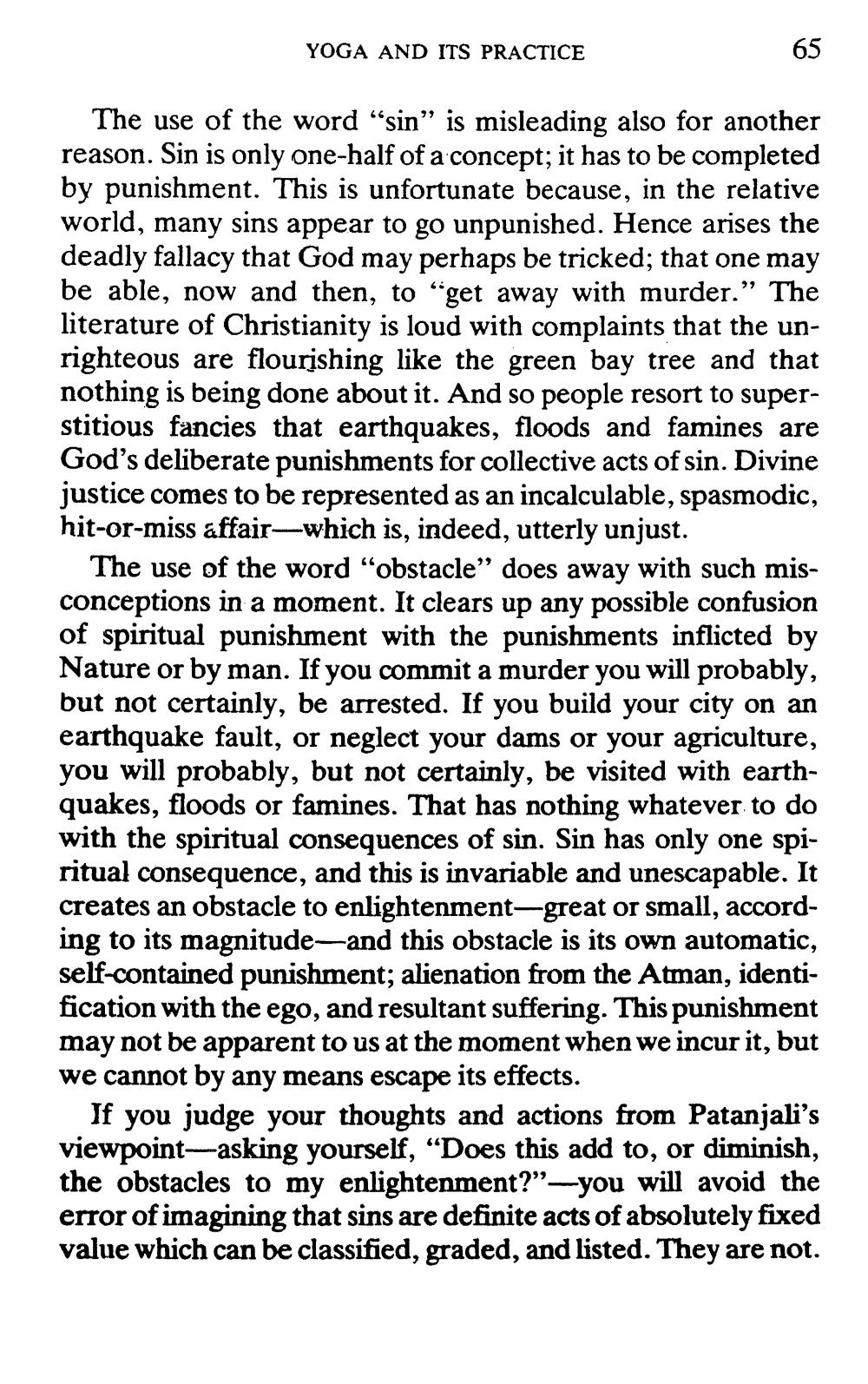________________
YOGA AND ITS PRACTICE
65
The use of the word "sin" is misleading also for another reason. Sin is only one-half of a concept; it has to be completed by punishment. This is unfortunate because, in the relative world, many sins appear to go unpunished. Hence arises the deadly fallacy that God may perhaps be tricked; that one may be able, now and then, to "get away with murder." The literature of Christianity is loud with complaints that the unrighteous are flourishing like the green bay tree and that nothing is being done about it. And so people resort to superstitious fancies that earthquakes, floods and famines are God's deliberate punishments for collective acts of sin. Divine justice comes to be represented as an incalculable, spasmodic, hit-or-miss affair-which is, indeed, utterly unjust.
The use of the word "obstacle" does away with such misconceptions in a moment. It clears up any possible confusion of spiritual punishment with the punishments inflicted by Nature or by man. If you commit a murder you will probably, but not certainly, be arrested. If you build your city on an earthquake fault, or neglect your dams or your agriculture, you will probably, but not certainly, be visited with earthquakes, floods or famines. That has nothing whatever to do with the spiritual consequences of sin. Sin has only one spiritual consequence, and this is invariable and unescapable. It creates an obstacle to enlightenment-great or small, according to its magnitude-and this obstacle is its own automatic, self-contained punishment; alienation from the Atman, identification with the ego, and resultant suffering. This punishment may not be apparent to us at the moment when we incur it, but we cannot by any means escape its effects.
If you judge your thoughts and actions from Patanjali's viewpoint-asking yourself, "Does this add to, or diminish, the obstacles to my enlightenment?"-you will avoid the error of imagining that sins are definite acts of absolutely fixed value which can be classified, graded, and listed. They are not.




